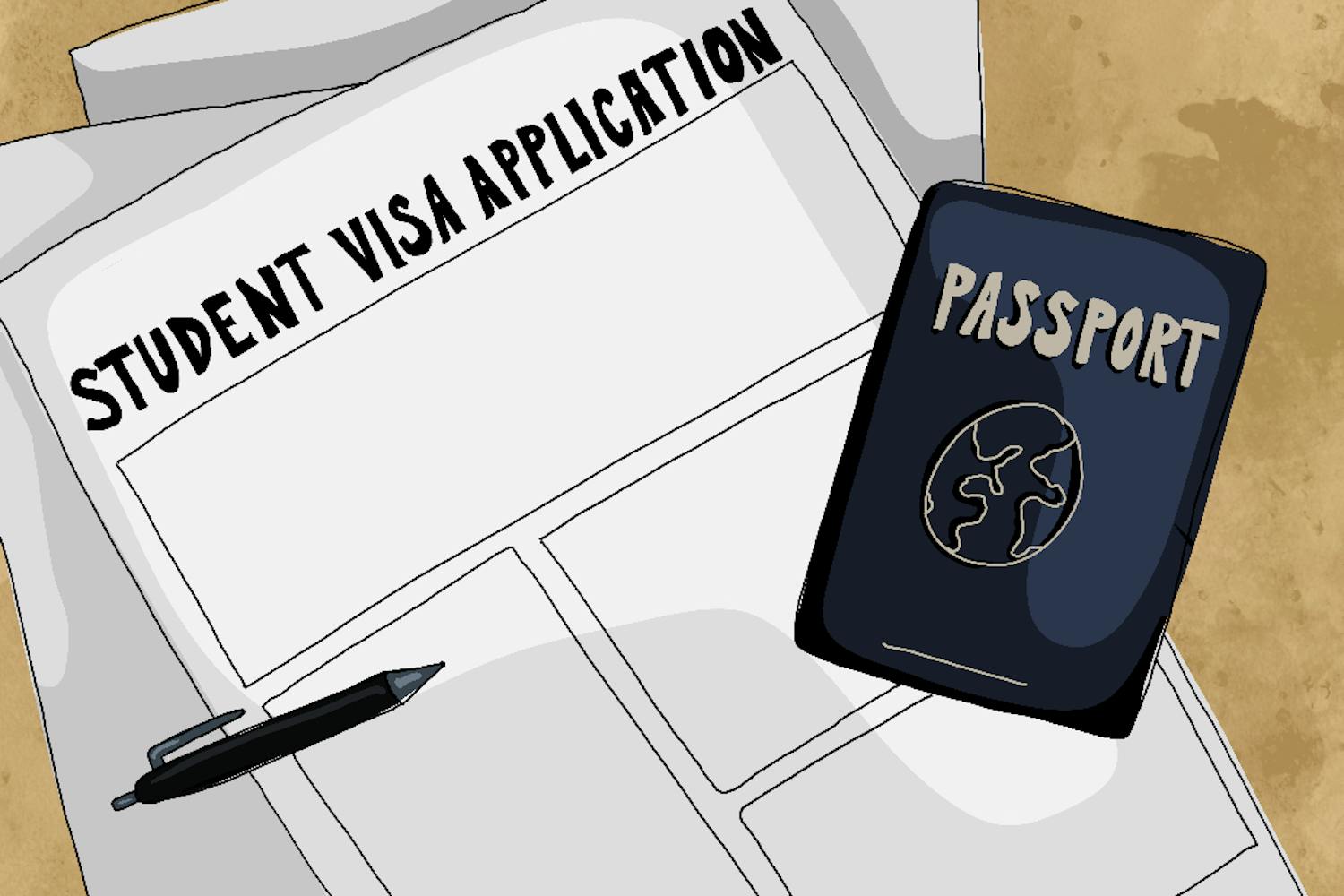Avoiding a problem is not always worth the repercussions that follow and waiting to confront an issue can make it more complex — and sometimes, worse — in the long run.
The question: “What do we do?” is the theme of the week facing politicians, couples and communities.
Martha McSally ran away from reporters and tripped over the elephant in the room | by Laurie Roberts
With the student vote rapidly increasing and civic advocacy groups on campus engaging students throughout the electoral process, it is concerning that Sen. Martha McSally refuses to answer questions regarding her potential involvement with other countries.
McSally, who has notoriously relied on Donald Trump during campaign rallies to help turn out vote, has yet to publicly criticize or question his potential involvement with other countries during the electoral process. Instead, McSally has gone as far as referring to the impeachment inquiry as a “total distraction” rather than calling for a fair and just process.
As a public servant, running away from reporters asking you a question about transparency is not a good look. As much as she tries to avoid the issue, it doesn’t seem to be getting dropped any time soon.
The climate crisis in terms Trump can understand | By Ban Ki-moon and Patrick Verkooijen
Donald Trump fulfilled one of his most dreaded campaign promises this week of withdrawing from the Paris Climate Accord.
Striving for perfection during the midst of the climate crisis is unattainable, but any step toward a more sustainable future is crucial to reducing the effects of man-made climate change.
“Is it perfect? No. Is it worth keeping? Definitely. Bluntly put, it is the only weapon we have to fight our climate emergency,” Ki-moon and Verkooijen wrote.
What happens to relationships when sex hurts | By Ashley Fetters
Reproductive health is not just abortions. Sometimes it entails chronic pain that can make the daily life of people with vaginas unbearable.
This is a topic that is not treated seriously enough within the common hook-up scene of college. Often, people are referred to as “prudes” and mocked for not being willing to “put out” although the hookup scene does not always prioritize the health of oneself.
“Sometimes a partner, especially a male partner, feels rejected, believing the female partner is exaggerating the pain she feels during sex as a way to brush him off,” Fetters wrote.
Julián Castro probably won't win the primary. But his campaign is still key. | By Lissandra Villa
Julian Castro is the only Latino running for president against an administration whose campaign relied heavily on anti-Latinx rhetoric.
With over 15,000 of ASU students being Hispanic or Latinx, Castro’s voice in the Democratic primary goes beyond just representation, but a reflection of advocacy to push for issues that are often overlooked. Castro has been a champion for DACA recipients, first and second-generation Americans and calling out police violence.
“Castro has made a place for himself by advocating for issues affecting minority groups and by consistently pushing his fellow candidates to take a stand,” Villa wrote.
Why artists are still choosing to come out in their music | By Michelle Kim
Coming out or realizing one's true identity has no set guide or timeline. Luckily, for students navigating and exploring their identity in college, the music scene has become slightly more diversified when it comes to identity.
"Additionally, heteronormativity is more aggressively instilled in certain genres that are marked by hyper-masculine performances and lyrics," Kim wrote.
As the music industry continues to confront their expectations and preferences for heteronormativity, the LGBTQ+ community has a couple of more relevant options to help cope with the next heartbreak. However, this does not mean that heteronormativity is still the norm and an issue that needs to continue evolving within all types of media.
Reach the columnist at jguzma19@asu.edu or follow @JennyGuzmanAZ on Twitter.
Editor’s note: The opinions presented in this column are the author’s and do not imply any endorsement from The State Press or its editors.
Want to join the conversation? Send an email to opiniondesk.statepress@gmail.com. Keep letters under 500 words and be sure to include your university affiliation. Anonymity will not be granted.
Like The State Press on Facebook and follow @statepress on Twitter.




